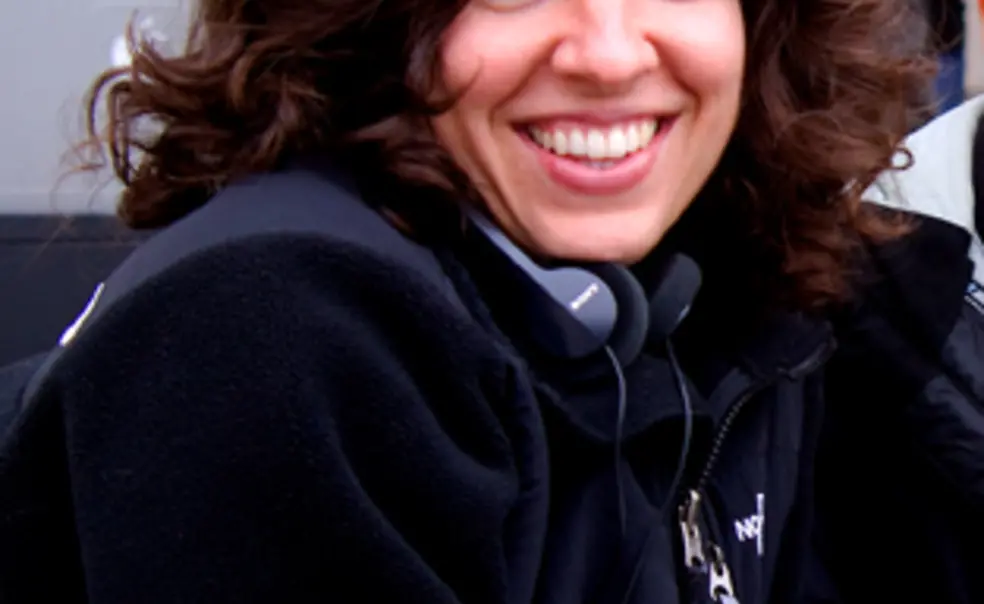Tribeca connection
Q&A with writer, director, and producer Jac Schaeffer ’00

As an undergraduate, Jac Schaeffer ’00 poured her extracurricular energies into Triangle Club, Theatre Intime, and the Princeton Shakespeare Company. But the California native found her calling in film. After earning a master's degree at the USC School of Cinema, she began working as a director, writer, and producer in independent movies and documentaries, following a career path she'd thought about since her teenage years. On April 26, Schaeffer will premiere her first full-length feature, the romantic comedy TiMER, at the Tribeca Film Festival. She spoke with PAW's Brett Tomlinson earlier this month.
TiMER is a love story that also looks at issues of technology in our lives. In the movie, people are able to implant a chip that counts down to the exact moment that you'll meet your true love. Is that an accurate setup?
Yes, that's it.
What happens from there?
Well, the idea is that the technology allows this to happen, but the catch is that if you get a TiMER implanted, in order for you to have a countdown your soul mate also has to have a TiMER. The plight of the protagonist is that everyone around her has countdowns, but her TiMER is blank. Her soul mate does not have a TiMER, so she systematically dates guys who don't have TiMERs and then convinces them to get TiMERs, only to be disappointed time and time again.
Her situation is actually the real-world situation: We're all walking around with a question mark and with doubts and confusion. The fact that the answer is possible for her is what really screws her up. So she sort of gets frustrated with the whole thing and ends up falling for a guy who has a countdown of four months. And then, the story gets fun.
What was your inspiration for this storyline?
At Princeton, I wrote my thesis about post-apocalyptic heroes and dystopian novels -- the conclusion was about The Matrix -- and I've always been interested in futuristic and dystopian stories. So it sort of is borne of that -- that's the technology side.
But the real inspiration is that my brother was getting married and my mom had one of those "countdown to the big day" clocks. My brother had met his true love, and I was, like, really single. ... I kept staring at this little device that my mom kept on her desk and thought if I had one of those and just knew the answer -- even if my soul mate wasn't going to appear anytime soon, if I just knew he was on his way -- I could relax and be more pleasant at the bridal shower and all that other stuff.
So it's sort of about the attraction of certainty.
Yeah, that's what it was. And that's how I began writing. But once I thought it out and began outlining the story, I realized that certainty would be horrible. ... What if you weren't going to meet [your soul mate] for 20 years? What would you do with that time?
TiMER is set to debut at the Tribeca Film Festival. How does a film get picked for Tribeca?
You submit a screener and fill out a form, send in press materials and that kind of stuff, and then you just pray and hope that they like it. ... It's a lot like getting into college.
What was it like when you got the word that you were in?
I'd wanted it for so long -- altogether it's over three years with this project -- and I didn't scream or freak out right away because I just didn't really believe it. But then there was a major high and an inability to sit still ... dancing, shaking, calling people. You're supposed to keep it secret in the beginning, and that was really hard.
How have viewers reacted to the film?
People are really sort of charmed by it -- it's a sweet, endearing romantic comedy with this twist. Afterward, people are always talking about would they or wouldn't they get a TiMER. That really grabs people. ... On set, we interviewed every single crew member and asked them that question. Typically, people will start the answer saying one thing and end the answer going in the other direction.
So what's your answer -- would you or wouldn't you?
I don't think I would. I think it would be extremely tempting, and I would probably want it really bad. But I don't think I would. I just think it would screw up too many things.












No responses yet